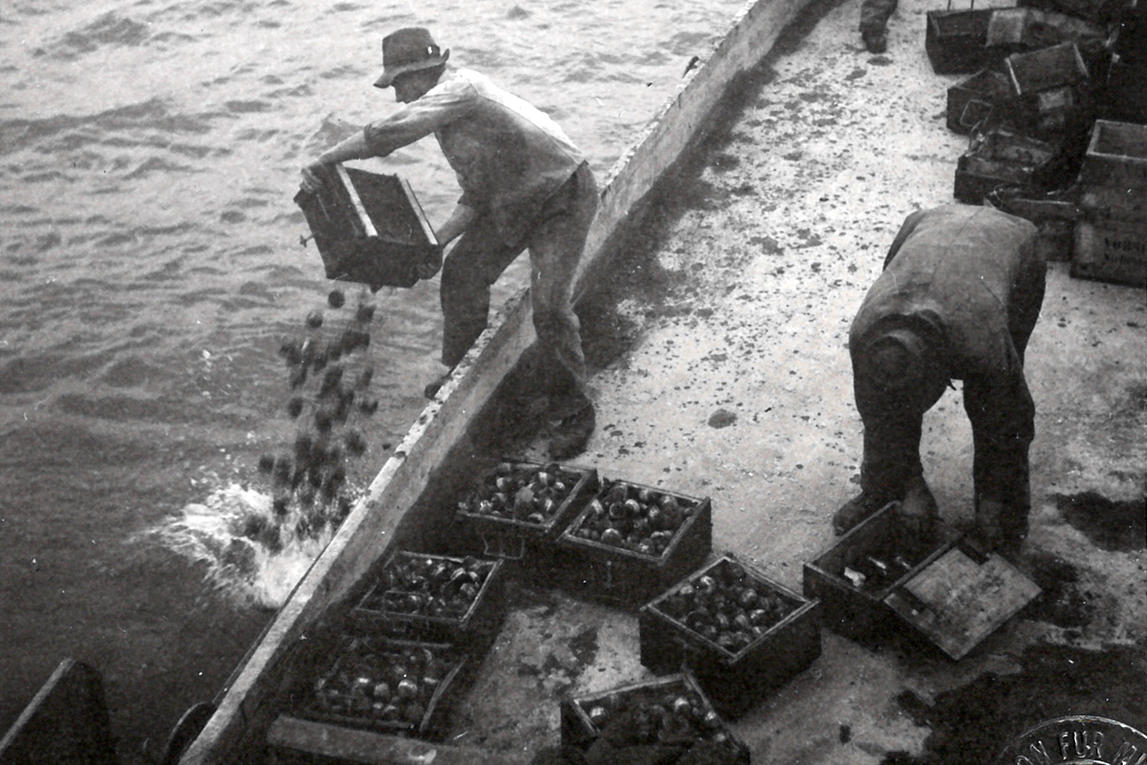
Army ammo dumped in Swiss lakes presents no water quality risk

The defence ministry says the thousands of tons of old Second World War bombs, grenades and other explosives that lie at the bottom of Swiss lakes have not affected water quality.
In its latest environmental monitoring report publishedExternal link on Tuesday, the defence ministry said sediment samples tested from lakes Thun, Brienz, Lucerne and Walen in 2019 had not revealed any “negative impact of submerged munitions on water quality”. Similar results were observed in 2016.
Between 1948 and 1967, the army dumped an estimated 8,120 tonnes of munitionsExternal link in lakes Thun, Lucerne, Brienz and Walen. Private firms also got rid of munitions in Lake Zurich, the Rotsee near Lucerne and Lake Geneva.

More
Unexploded munitions continue to reverberate in Switzerland
The idea of disposing of the piles of old dangerous ordinance by submerging it in Swiss lakes first started in the 1920s, but quickly gathered pace after the Second World War when Switzerland found itself with huge stock of unused weapons and ammunitions on its hands.
Alerted to potential risks, from 2005-2010 the authorities stepped up monitoring and investigations in lakes. Since 2012, regular field reports and tests of sediment and water samples have reached similar conclusions: there is no pollution to lakes monitored by the federal authorities. Bringing up old shells and other munitions would be a risky exercise for the local population and contractors, with possible environmental damage also a concern.
For its most recent tests, the defence ministry extracted 1.5-metre-long sediment samples from the lake floors and tested them for explosive substances such as nitroglycerin as well as heavy metals like lead and mercury.
The concentration of harmful substances did not reach established thresholds for the vast majority of the sediment samples, the ministry said. Small traces of explosives from the submerged ammunition were registered in just a handful of the samples.
In the future, the defence ministry plans to continue monitoring the munitions once every ten years and lake water quality will be tested every five years.
Last year, the Geneva authorities announced that they planned to launch a study into the munitions that were dumped in the lake between 1950-1970 not far from the city centre by a private firm Hispano-Suizo.
In February, 170 residents of the village of Mitholz, canton Bern, were told to leave their homes for a decade to allow the authorities to clear 3,500 tons of munitions at a nearby underground dump.

More
Unexploded munitions under the Alps are a ticking time bomb

In compliance with the JTI standards
More: SWI swissinfo.ch certified by the Journalism Trust Initiative































You can find an overview of ongoing debates with our journalists here . Please join us!
If you want to start a conversation about a topic raised in this article or want to report factual errors, email us at english@swissinfo.ch.